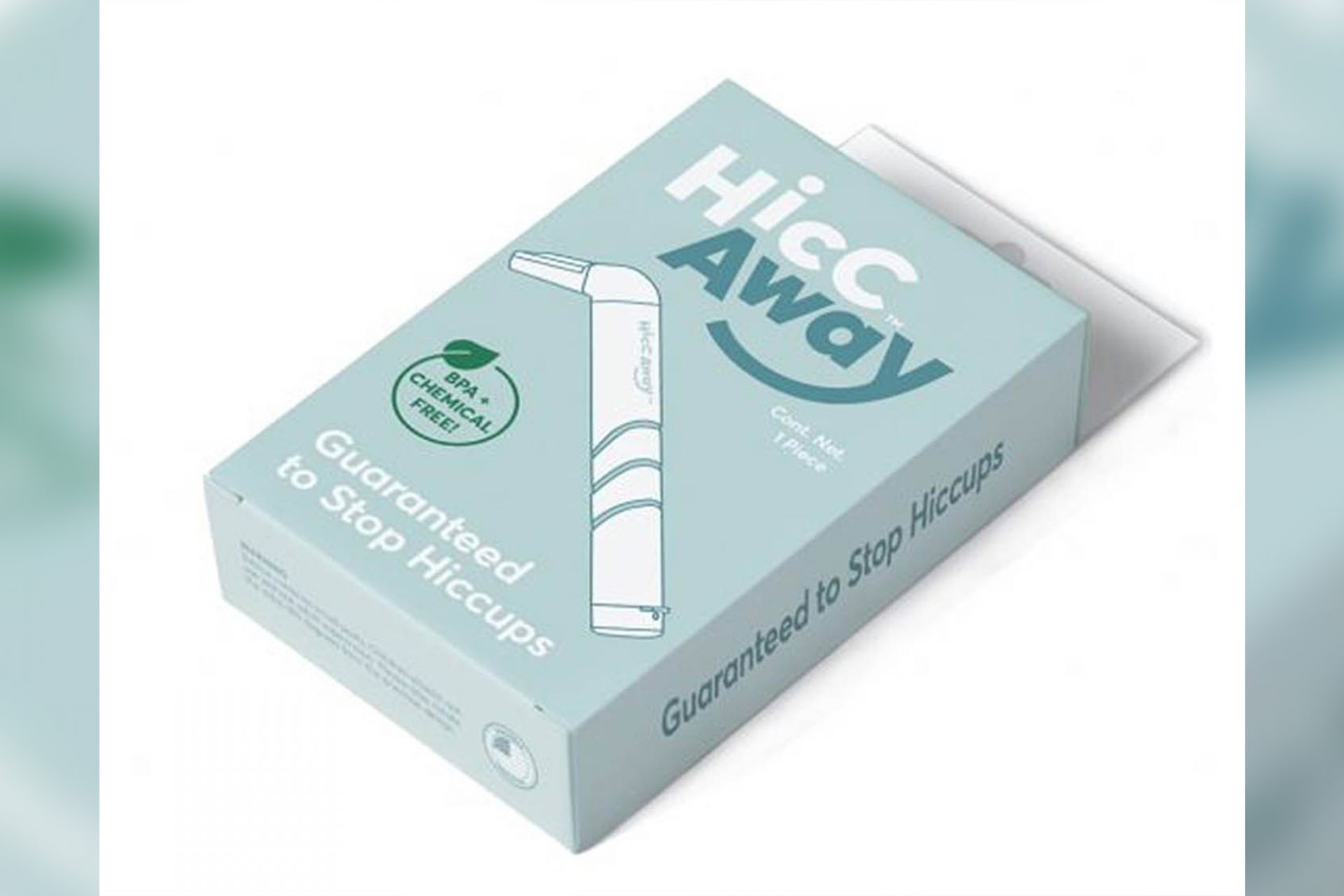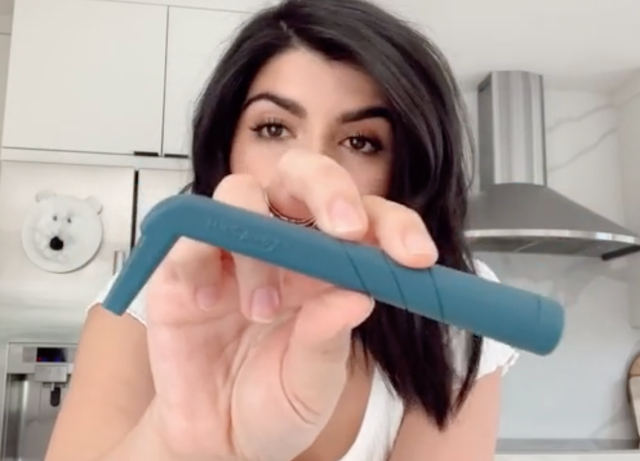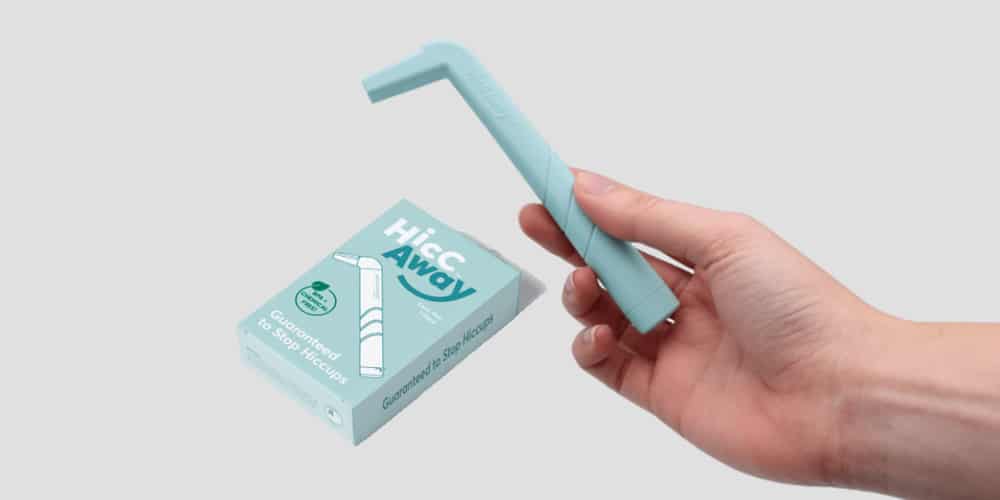
HiccAway
It is important to note however, that this study lacked a few features that are typically associated with a high standard medical trial. Many people list hiccups as one of the most annoying problems associated with being human. For a group of people, persistent hiccups can seriously undermine quality of life.
In 2017, the question “what causes hiccups?” was the most searched medical question in America. That’s how much of an issue these literal hiccups are.
Dr. Ali Seifi of the University of Texas was tired of the traditional methods used to dispel hiccups, methods like drinking water or varying breathing techniques. He then came up with the idea that a straw could help interrupt a bad bout of hiccups.

Straw For Hiccup Relief
The straw, known as forced inspiratory suction and swallow tool (FISST), which goes by the marketing name HiccAway, requires more suction power than regular straws in order to draw up liquid.
The makers of FISST say that drinking with this straw: “Lowers the diaphragm while opening first, and then closing the epiglottis (the leaf-shaped flap in the throat that keeps food out of the windpipe). Doing so stimulates at the same time the ‘Phrenic’ and ‘Vagus’ nerves, allowing the brain to ‘reset’ and stop the hiccups.”
Dr. James Alvarez of the University of Texas gathered 249 volunteers to use the straw and report back their results.
About 92% of the participants said that HiccAway helped their hiccups go away. When it comes to effectiveness, FISST received a score of 4.58 out of 5. 90% of participants marked it as more effective than traditional home remedies.

HiccAway Straw
A majority of the participants reported occasional bouts of hiccups, while about 11 reported daily hiccups issues, and 53 that suffered from them weekly. The frequent sufferers reported back success rates that were consistently as high as people who didn’t suffer from them as often.
The one issue is that hiccups are an issue where placebo effect could likely come into play. A lot of people swear by solutions that do not end up working for others. It is not clear how this trial could be conducted in a more scientific way.








